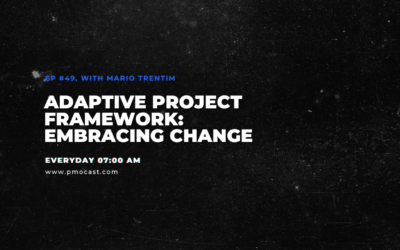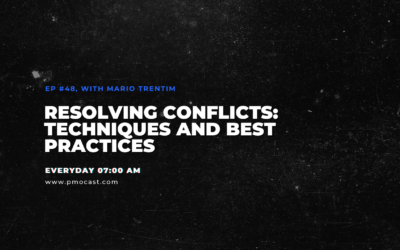Hello, and welcome back to PMOCast. Today, we’re diving deep into the essential framework that every project manager should know: the five stages of project management. Understanding and mastering these stages are the keys to steering your projects towards success effectively.
The Five Pillars of Project Management&
The five stages of project management can be considered the backbone of every successful project. These include:
1. Initiation
2. Planning
3. Execution
4. Monitoring and Controlling
5. Closure
Each stage has its unique set of tasks and goals. Let’s delve deeper into these stages.
1. Initiation: The Birth of Your Project
The initiation stage is where the magic begins, where the project’s objectives and feasibility are defined, and the project charter is created. The project manager works closely with stakeholders to identify the project’s purpose, scope, and deliverables. Remember, a thorough initiation stage lays the solid foundation required for a successful project.2. Planning: Crafting a Blueprint for Success
Once the project is initiated, the next step is to develop a comprehensive project plan. The planning stage involves creating a work breakdown structure, estimating required resources, developing a schedule, and establishing a budget. In essence, the project plan is the roadmap that will guide your team through the journey of execution.
3. Execution: Making Things Happen
The execution stage is where the project plan is implemented. As the project manager, you lead the team in executing the tasks outlined in the plan. Your role involves allocating resources and coordinating with stakeholders to ensure smooth progress. Communication is the lifeblood of this stage – it’s critical to keep the project on track and address any issues that may crop up.
4. Monitoring and Controlling: Keeping Things on Track
As the project progresses, the project manager needs to continuously monitor and control the project’s progress. This involves comparing the actual performance to the planned performance and taking corrective actions if deviations occur. The monitoring and controlling stage helps ensure that the project remains on schedule and within budget.
5. Closure: Wrapping Up and Reflecting
Upon completion of the project deliverables, the project enters the closure stage. As a project manager, you conduct a final review, confirm that all deliverables have been met, and document any lessons learned for future projects. Lastly, you’ll formally close the project, release any remaining resources, and celebrate your team’s success.
By mastering these five stages, you can confidently navigate the project management process and deliver successful projects.
Wrapping Up and Looking Ahead
That concludes our deep dive into the five stages of project management. Next time, we’ll be exploring the “triple constraint” in project management, and how to balance time, cost, and scope for project success.
Do you have any questions or topic suggestions? Feel free to reach out on social media or via our website. We appreciate you taking the time to engage with us today, and we look forward to sharing more project management insights with you in our upcoming blogs.
Don’t forget to share this article with your friends and colleagues using the hashtag #PMOCast. And if you enjoyed this post, please subscribe to our PMOCast blog to make sure you don’t miss any of our future content.
Until then, take care, and happy project managing!
Keywords: Five stages of project management, Project initiation, Project planning, Project execution, Project monitoring and controlling, Project closure, Project management insights, Project management process, Project management stages, PMOCast.




0 Comments